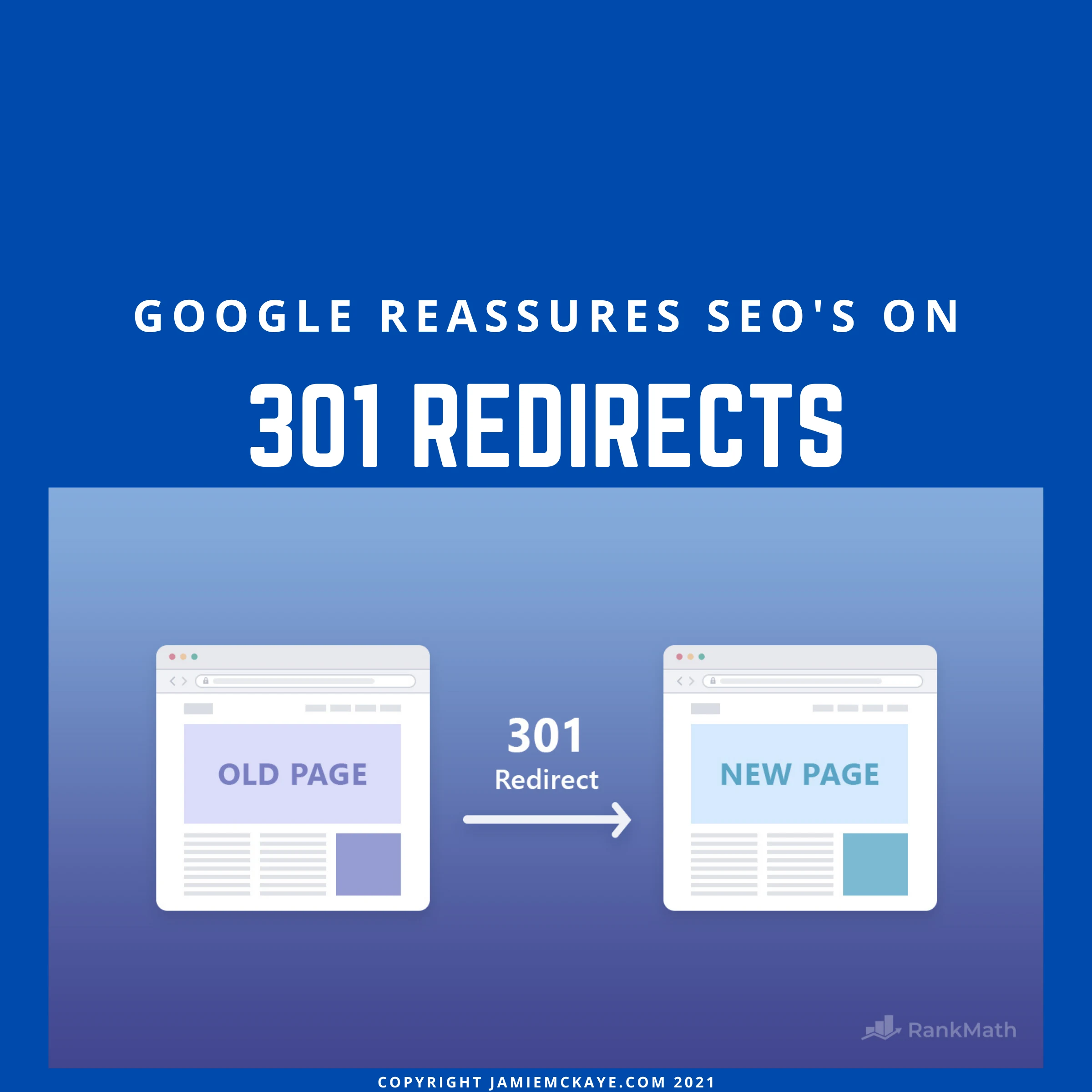Google Reassures SEO's on 301 Redirects

Anyone who has ever moved a webpage to a permanent new location should certainly be familiar with using 301 redirects, to give Google and other search engines the heads up.
But what impact do they have on your organic search rankings?
Here’s a closer look at 301 redirects and the connection between them and Google Rankings.
301 Redirects are an important Ranking Factor... right?
To get better insight into that important question, it is wise to begin with the basics; a logical place to start is what a 301 redirect actually is.
Simply put, a 310 redirect is a redirection, server-side for a URL that has changed permanently.
Why that might happen could be for a number of different reasons, for example:
- A change from HTTP to HTTPS
- A move to a new domain or a new website platform
- Optimisation of URL slugs for existing pages or posts
The burning questions in any of the above scenarios is whether PageRank (the values assigned to a site’s popularity or importance) would transfer from the old URL to the shiny new one and the automatic application of inbound links to that same new URL.
What do we actually know?
Officially, not much is said around the topic of 301 redirects as a ranking factor with only a few notable exceptions surfacing from the last decade.
Back in 2011, Matt Cutts, head of Google’s Webspam Team at the time spoke about Google following a seemingly limitless number of 301 redirects from one page to another, in a Google Webmaster Q&A titled; Is there a limit to how many 301 (permanent) redirects can I do on a site?
Back then, he noted however that, after four or five hops the Googlebot would most likely stop following those redirects.
Fast forward to 2013, Matt was asked What percentage of PageRank is lost through a 301 redirect?
Here he did confirm that a percentage of PageRank was lost in 301 redirects, but while some SEOs quote that loss as being as much as 15% Matt doesn’t mention a specific percentage.
In 2016, Google’s John Mueller addressed a question in a Google+ post asking whether 301 redirects pass PageRank by replying:
“…for 301 or 30.2 redirects from HTTP to HTTPS, no PageRank is lost.”
He gave further confirmation regarding HTTP – HTTPS changes being a lightweight ranking factor in 2019, this time via Twitter in reply as part of a discussion how SSL affects a site’s search ranking.
An HTTP-HTTPS redirection is the closest 301 redirects are linked to ranking factors.
Last year via Reddit, Mueller offered more insight into potential SEO implications of multiple 301 redirects strung together, his advice was that multiple redirects can have a negative impact on speed and echoing the insight delivered by Matt Cutts back in 2011, advised site owners to aim for less than 5 hops or risk issues:
The only thing I’d watch out for is that you have less than 5 hops for URLs that are frequently crawled. With multiple hops, the main effect is that it’s a bit slower for users. Search engines just follow the redirect chain (for Google: up to 5 hops in the chain per crawl attempt).
This year Google has updated its advanced SEO documentation around Redirects and Google Search reassuring SEOs that of all the different redirect types, 301’s are the most likely to be crawled correctly, with Meta refreshes and temporary HTTP having the least chance of being crawled correctly.
It certainly seems, based on the evidence available, that one of the few times you might experience a boost as a result of setting up a 301 redirect is when you go to HTTPS from HTTP. However that is due to the HTTPS upgrade being a ranking factor, not the 301 redirect itself.
If 301 redirects are used correctly, it seems there are no reasons why they should impact a website’s search rankings.





Comments